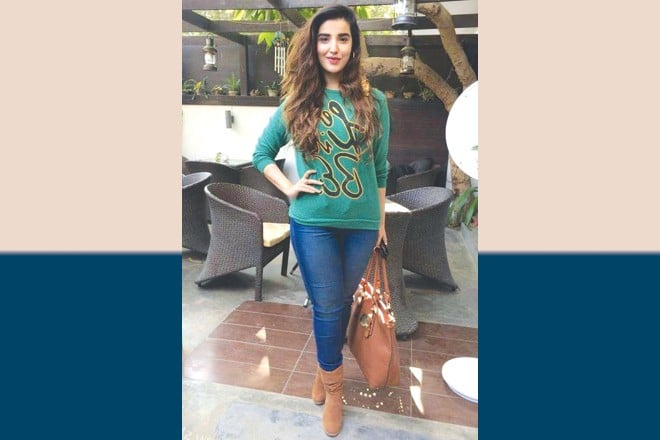
Who’s responsible for fixing an industry built on the fixation of image and the perpetuation of a skewed ideal?

All consumers and influencers of the fashion industry know that it perpetuates severely skewed societal standards of beauty. That holds true especially in the subcontinent, where there’s a lingering obsession with fair skin and light features; funnily enough the exact opposite of what most South East Asians look like. As a country that was colonized in the past, the residual effects of that colonization still exist today and mainstream beauty standards reflect this its history. Within this context, the idea of what is considered attractive is inexplicably tied with Western ideals of beauty including, but not limited to, fair skin, sharp features, light eyes and long hair.
Our beauty preferences are evident in the celebrities reigning atop: Mawra Hocane, Mahira Khan, Syra Shahroz, Ayesha Omar, Maya Ali and Ainy Jaffri, to name a few. Not to discredit any of their accomplishments, it also happens to be true that they pretty much fit Western beauty standards. Hareem Farooq who entered the industry but didn’t fit these skewed ideals has gone on record to talk about how body image issues are perpetuated in the industry.
The women who are more directly linked to the fashion industry, the models, have protested the fact that they can’t cut their hair short because of long term contracts with lawn brands. The brands that feel their consumer base will feel alienated if they see women with short hair on billboards; short hair is the apparent antithesis of beauty in Pakistan. In Pakistan, ironically, photographers feel that they are teetering the lines of ‘experimental work’ if they work with a dark skinned model. Ironic because more than half our population is ‘dark’.
Semantics are also a measure of our partialities: in the sub-continent, a fair woman will be praised using adjectives such as beautiful or gorgeous while anyone possessing a dusky complexion will most likely be termed attractive. And the products marketed to rid oneself of these darker complexions are a story for another day. The effects this prejudice has on women are especially troubling and have a detrimental effect on the future successes of many women in Pakistan.
The reason why this perpetuation is only becoming worse is that we’ve always known that with glossy fashion magazines and billboards, there is airbrushing and a kind of fantasy world is created but with social media and Instagram we oft forget that it’s an equally fabricated fairy tale. Bloggers and influencers are always using manipulation software and filters to edit their photos, making themselves thinner, fairer and plain flawless. With how invasive the constant stream of imagery has become, it is almost impossible to ignore the influence of the media on your ideas of beauty and body image. Society is losing all perspective on the diversity of beauty and the dissatisfaction resulting from this leads to low self-esteem so it’s our duty to shake up a change.
We need to push for a different ideal of beauty, not based on myopic standards but based on being kind to ourselves and openly discussing beauty as something that is broader than a constricted vision. Beauty should be being the best version of one’s self, rather than putting yourself through torture to fit into someone else’s ideals. A brand that has put itself on the right side of the movement is Dove, with its campaigns for inclusion of all women. The latest is where they seek to redefine what a "beautiful woman" is by uploading a large number of non-stereotypical pictures of women on Shutterstock. Similarly, other brands need to take ownership of the material they put out, who they choose to represent them and the messages they give out.
We must also do our part by exposing the media’s ideal and narrow framework as unrealistic and often unhealthy.
As women we can educate each other on what healthy really is, discuss and expose the media’s use of retouching and altering of photos and remind one another that everybody is beautiful.
We can be models of self-acceptance and love in front of young children and each other and create a model that the young ones can emulate. Children naturally think their mothers are beautiful and have no perception of skinny, or tall or other ‘ideals’ being beautiful. They see love and affection and security as beautiful and that’s the kind of beauty that should be perpetuated. When it comes to shifting the narrow beauty ideals that have dominated the industry, change really has to be led from the ground up and we have a long way to go but every step matters.